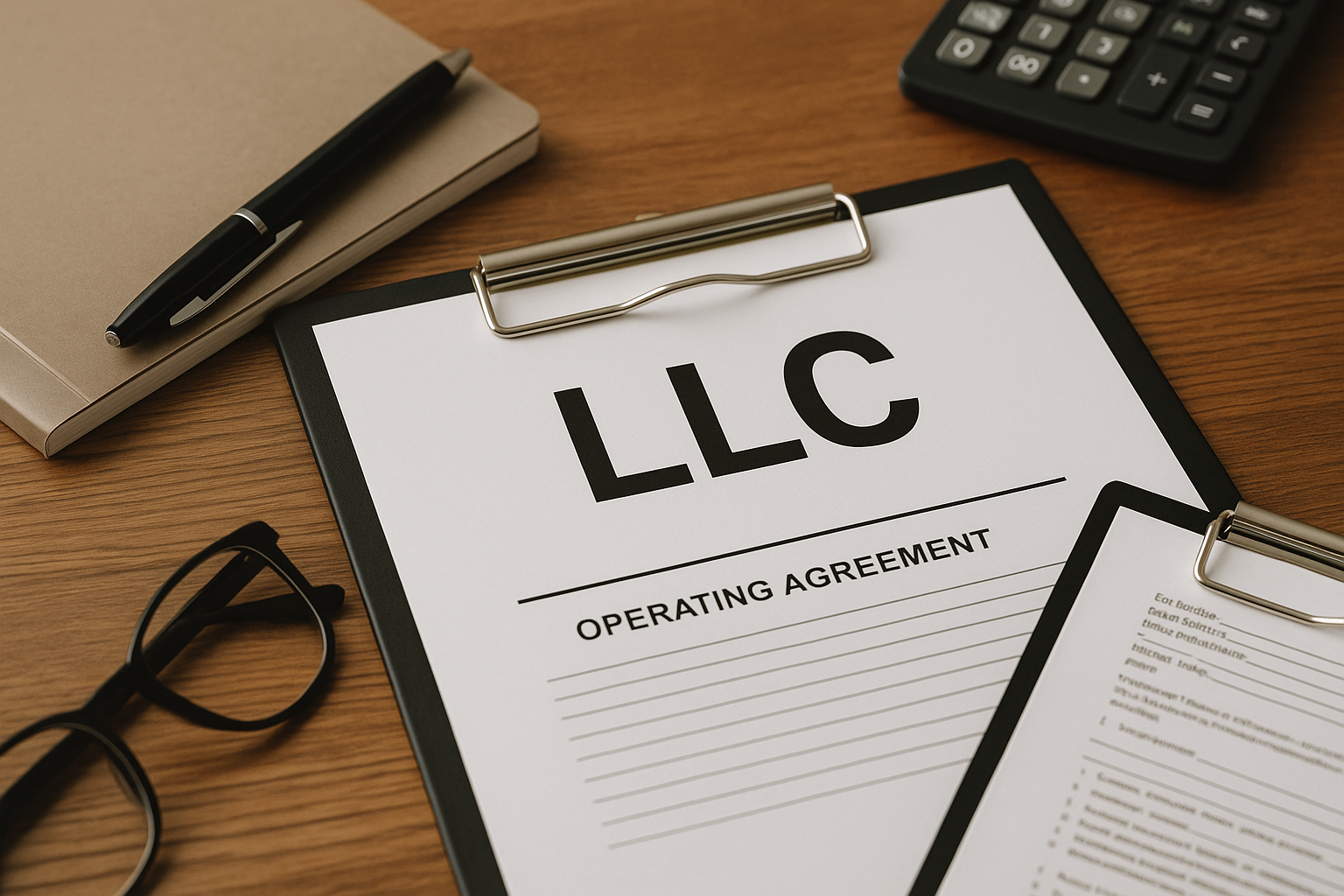As a small business owner, choosing the right legal structure is one of your most important early decisions. Among the most popular options is the Limited Liability Company (LLC)—and for good reason. It combines the flexibility of a sole proprietorship with the legal protection of a corporation, making it a smart choice for many entrepreneurs.
In this guide, you’ll learn exactly what an LLC is, how it works, its pros and cons, and why it might be the right move for your business.
What Does “LLC” Stand For?
LLC stands for Limited Liability Company. It’s a legal business structure that exists separately from its owners (also called members). This separation protects your personal assets—like your house, car, or savings—if your business faces lawsuits or debts.
In other words: if your business is an LLC and gets sued, your personal belongings usually cannot be taken to pay for business liabilities.
Key Features of an LLC
- Limited liability protection for members
- Pass-through taxation (profits are taxed as personal income)
- Simple structure with fewer formalities than corporations
- Flexible ownership – can have one or many members
- Can be managed by members or appointed managers
LLCs are recognized in most countries, especially the U.S., and are easy to set up and maintain.
Benefits of Forming an LLC
Here are the top reasons small business owners choose an LLC:
1. Personal Liability Protection
If your business is sued or goes into debt, your personal assets are protected (as long as you follow legal rules and don’t mix finances).
2. Tax Flexibility
By default, LLCs are “pass-through” entities, meaning profits are reported on your personal tax return, avoiding double taxation. However, LLCs can also elect to be taxed as a corporation if that’s more beneficial.
3. Simple Compliance Requirements
LLCs require less paperwork than corporations. You typically don’t need to hold formal board meetings, issue stock, or keep extensive corporate records.
4. Credibility and Trust
Registering as an LLC can make your business seem more legitimate to clients, partners, and investors.
5. Flexible Profit Distribution
LLCs can distribute profits however they choose, regardless of ownership percentage, as long as it’s documented in the operating agreement.
Drawbacks of an LLC
While LLCs are great for many entrepreneurs, there are a few limitations to consider:
1. Self-Employment Taxes
In many countries (especially the U.S.), LLC owners must pay self-employment tax, which includes both employer and employee contributions to social security and Medicare.
2. Startup and Maintenance Costs
Although less than a corporation, forming and maintaining an LLC is more expensive than operating as a sole proprietorship.
3. Limited Investment Options
LLCs can’t issue stock, which may make it harder to raise funds from outside investors or venture capitalists.
4. State-Specific Rules
Laws and fees vary by state or country, so what works in one place may be more complicated in another.
Who Should Form an LLC?
An LLC may be right for you if:
- You’re running a business with moderate risk (like consulting, coaching, e-commerce, design, marketing)
- You want personal liability protection
- You plan to hire employees or grow your business
- You want to appear more professional to clients and partners
- You need a legal separation between personal and business finances
Even many solopreneurs choose LLCs to protect themselves from potential legal and financial issues.
How to Form an LLC (General Steps)
While the exact steps vary by location, here’s a general outline:
1. Choose a Unique Name
Make sure no other LLC in your state is using the name. Include “LLC” or “Limited Liability Company” in the name.
2. Designate a Registered Agent
This is the person or company who receives legal documents on behalf of your LLC. You can act as your own agent in some areas.
3. File Articles of Organization
Submit formation documents to your state or local authority. There is usually a fee (often between $50 and $300).
4. Create an Operating Agreement
This outlines how your LLC will be run, who owns what, how profits will be distributed, and how decisions are made.
5. Get an EIN
Apply for an Employer Identification Number (EIN) from your country’s tax authority. In the U.S., this is done through the IRS for free.
6. Register for Taxes
If your state or country requires it, register to collect sales tax, withhold payroll taxes, or pay business-specific taxes.
7. Open a Business Bank Account
Keep business finances separate. You’ll need your EIN and LLC documents to open a bank account.
Maintaining an LLC
Once your LLC is formed, here’s how to keep it in good standing:
- File annual or biennial reports with your state
- Keep business finances separate from personal funds
- Update your operating agreement if ownership or structure changes
- Renew licenses and permits as required
- Stay compliant with local and national tax requirements
Final Thoughts: Is an LLC Right for You?
Choosing to form an LLC can give your business a solid legal foundation, protect your personal finances, and add professionalism to your brand.
It’s especially valuable if you plan to:
- Take on clients or customers
- Sell physical or digital products
- Scale beyond a hobby
- Limit your personal risk
- Hire employees or independent contractors
If you’re still unsure, consult a business lawyer or accountant. But for many small business owners, an LLC is the perfect next step toward building a secure and sustainable future.
